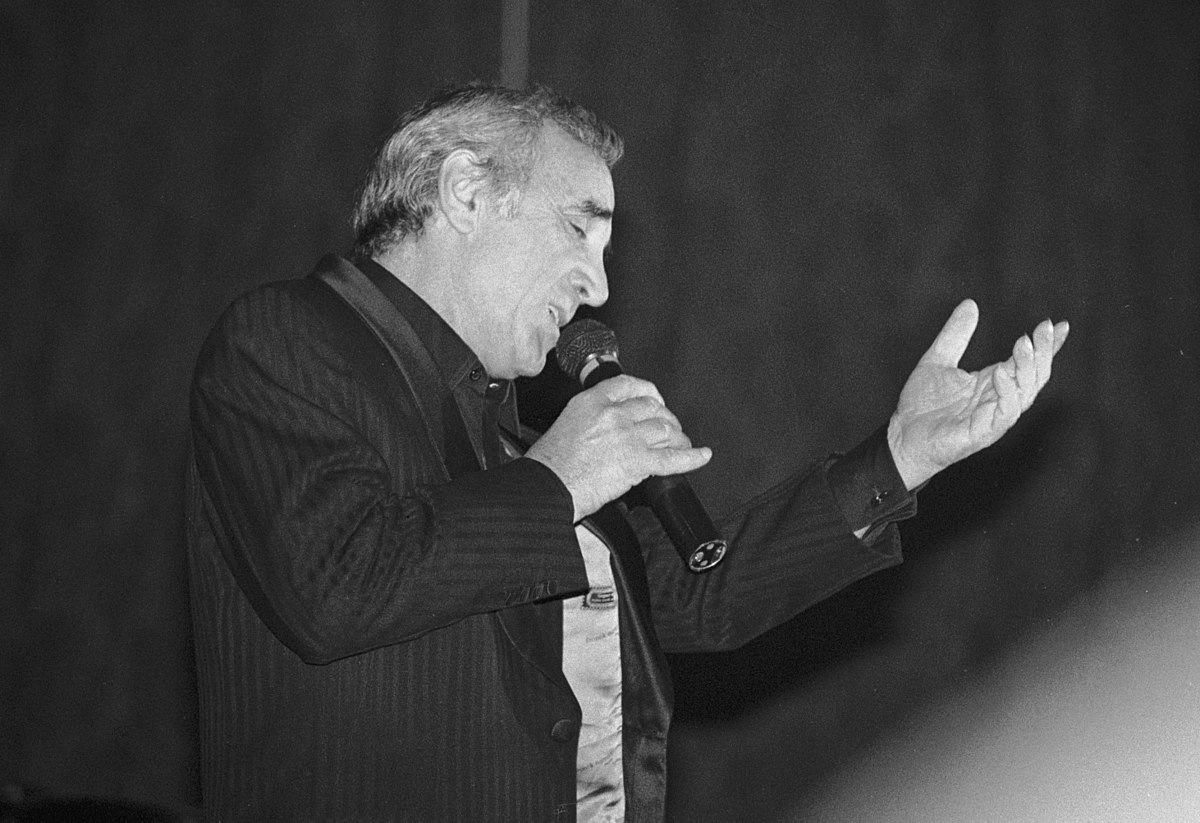 With the recent death of the illustrious French-Armenian singer Charles Aznavour (Shahnour Aznavourian), we are reminded of his great legacy as a member of the global Armenian Diaspora and his influential impact on the 1915 Armenian Genocide. While his mournful songs of estrangement and suffering, and the existential search for love and happiness, resonated with millions of adoring fans, it was his tribute to his ‘fallen’ ancestors that will remain indelible.
With the recent death of the illustrious French-Armenian singer Charles Aznavour (Shahnour Aznavourian), we are reminded of his great legacy as a member of the global Armenian Diaspora and his influential impact on the 1915 Armenian Genocide. While his mournful songs of estrangement and suffering, and the existential search for love and happiness, resonated with millions of adoring fans, it was his tribute to his ‘fallen’ ancestors that will remain indelible.
As far back as the early 1960s, I have memories of his plaintiff songs and my Armenian Canadian mother’s embrace of his ballads. As an undergraduate, I was an enthusiastic fan of his memorable performance in “Shoot the Piano Player” (Tirez sur le pianiste) by acclaimed French filmmaker François Truffaut. Several decades later, I started exploring way in which musicians and performers penned songs about genocide. As a professor, I was researching for the Armenian Genocide displays at the newly established Canadian Museum for Human Rights in Winnipeg, Manitoba. Then I became an editor of the first-ever English-language encyclopedia on the Armenian Genocide entitled The Armenian Genocide: The Essential Reference Guide (2015).
I drew upon the research of Jack Der-Sarkissian’s “Musical Perspectives on the Armenian Genocide: From Aznavour to ‘System of a Down’” in one of the pioneering collections edited by distinguished Professor Richard Hovannisian: The Armenian Genocide: Cultural and Ethical Legacies (2007). In the music entry of the encyclopedia, I noted that in 1975, as part of the 60th anniversary of the genocide, Aznavour co-wrote (with George Garvarentz) and performed in French the somber song “Ils sont tombes” (They have fallen). Its lyrics translated into English by Nanor Kabakian capture the essence of genocide. Among the more memorable lines are the following: “They fell without knowing why…Men, women, and children whose only wish was to live…They were mutilated, massacred, while their eyes were full of fear…They fell silently. By thousands, and the millions, while the world remained silent. In the desert, their bodies looked like minuscule red flowers…Covered by a sandstorm, which also concealed their existence…Only to die anywhere, without leaving any trace…Ignored, forgotten as they were going into eternal sleep…I, myself, am of this race which now sleeps without a resting place…Who chose to die rather than relinquish the faith…Death struck them, regardless of their age…Their only crime being children of Armenia.”
We remain eternally grateful for Aznavour. We recall his determination to remember with word…and song.
Author information
The post Aznavour and the Armenian Genocide appeared first on The Armenian Weekly.
Source: Armenian Weekly
Link: Aznavour and the Armenian Genocide
